Froome’s time loss 'not the end of the world,' says Roche
Sky rider concedes ground to rivals on Vuelta’s first summit finish
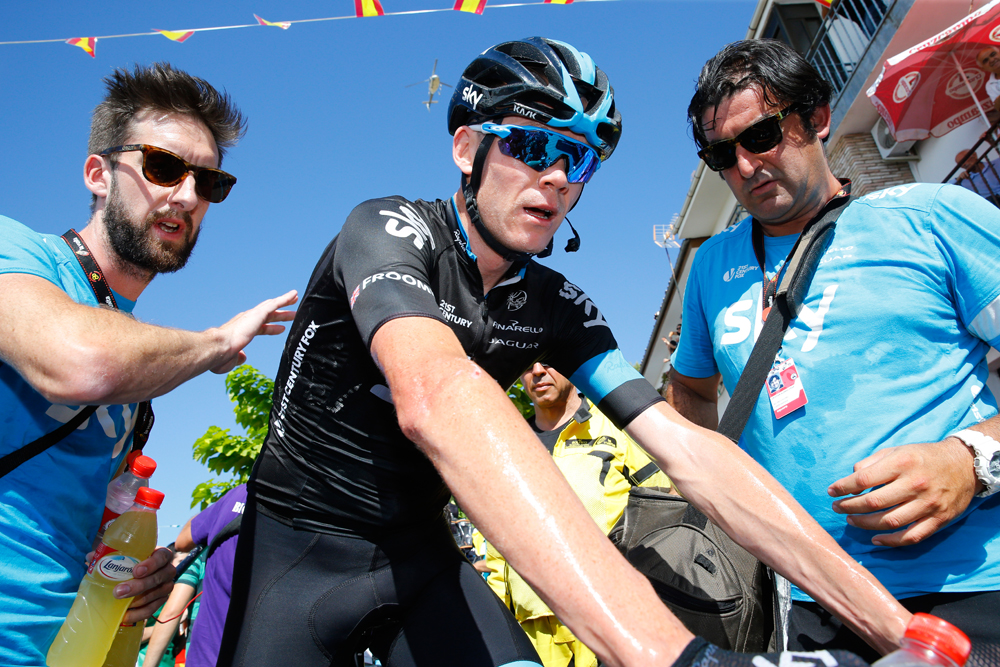
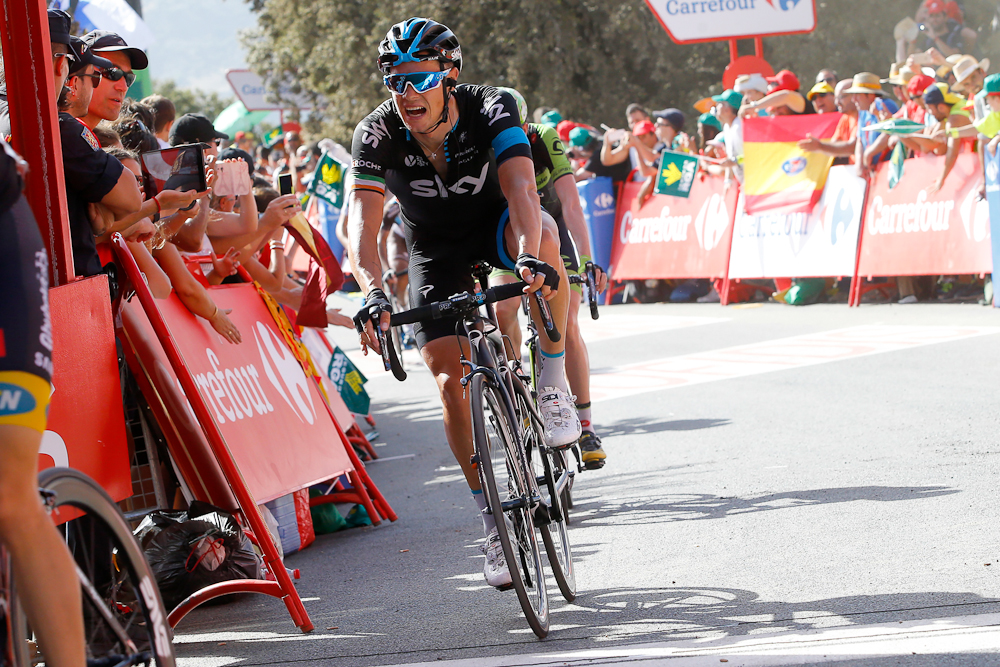
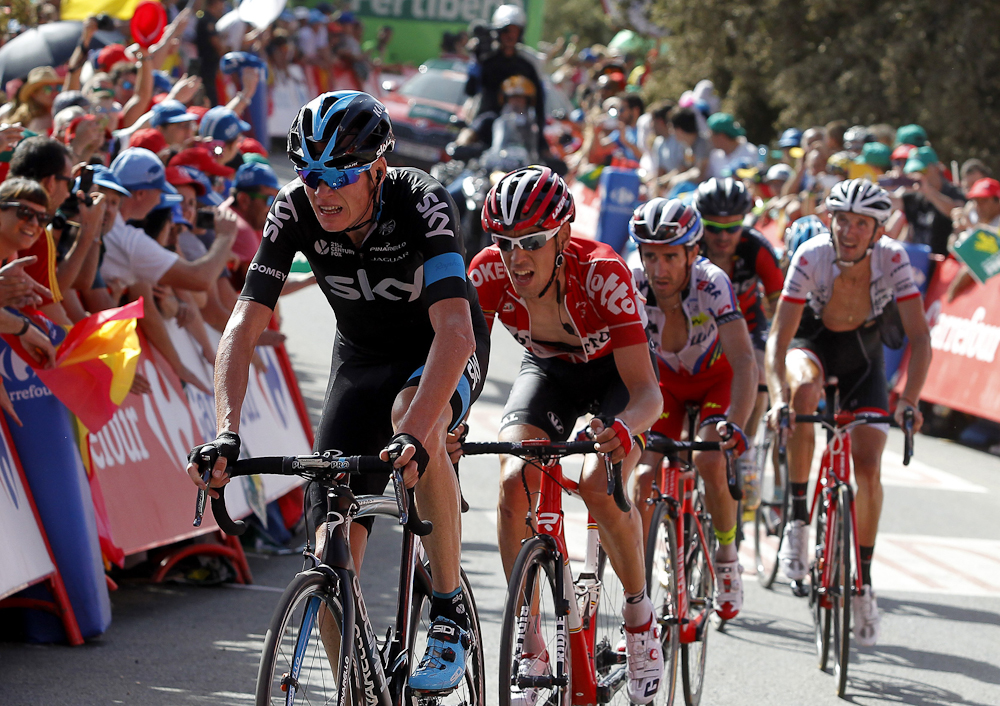
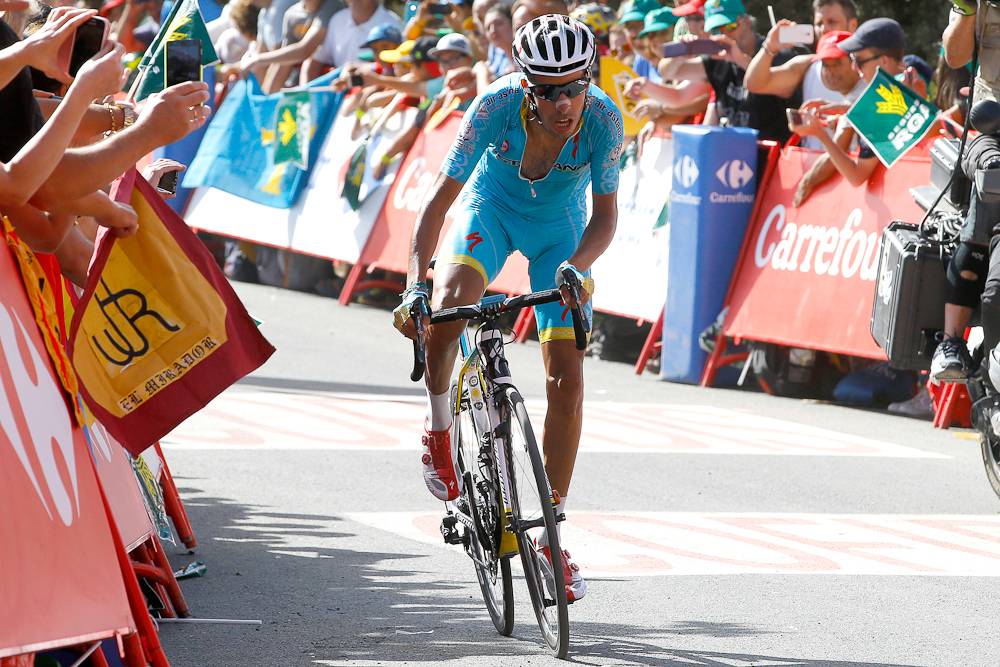
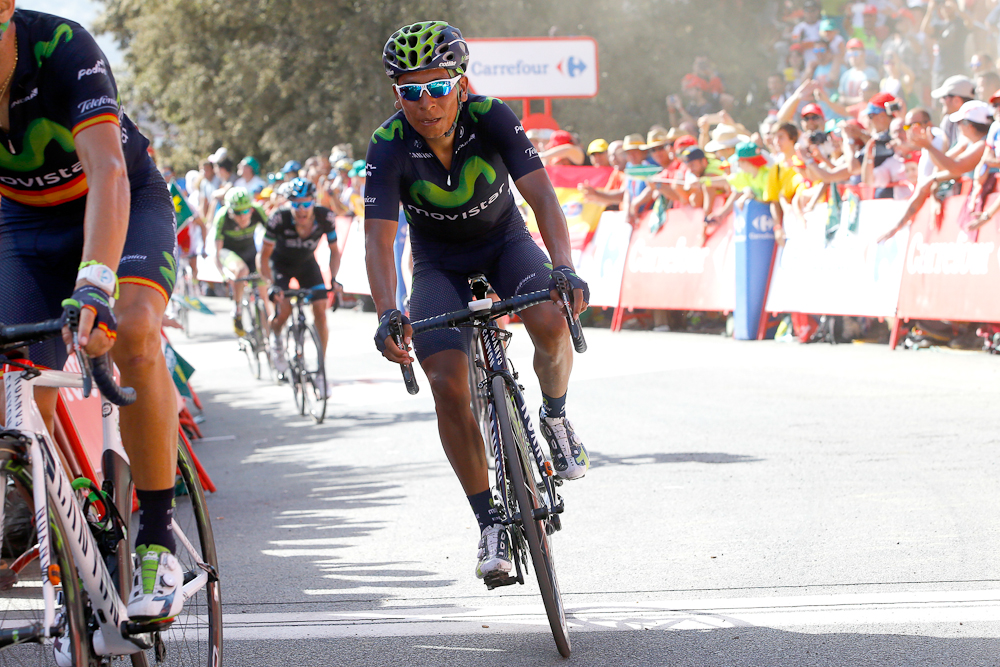
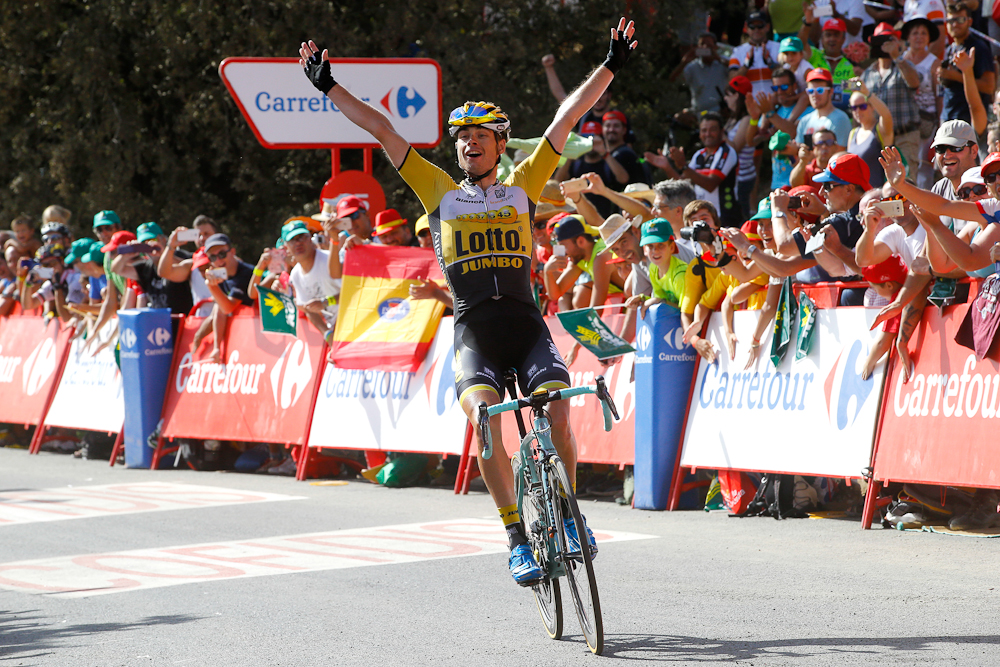
Quite what Chris Froome (Team Sky) made of losing half a minute to his principal rivals for the red jersey on the Vuelta a España’s first true mountaintop finish at La Alpujarra was anyone’s guess. He wasn’t saying.
The Tour de France winner lost contact with the group of favourites with a little over a kilometre to go and came home in 17th place on the stage, losing 27 seconds to the red jersey group and a further seven to Fabio Aru (Astana), whose attack had precipitated his unexpected travails.
Froome performed a prompt U-turn on crossing the line and descended towards his team bus down the mountain without making any declarations to the reporters gathered in the finish area. It was instead left to Nicolas Roche, once again Sky’s most effervescent performer, to downplay the importance of Froome’s losses in the first major rendezvous of this Vuelta, which see him slip to 12th overall, 1:22 off the leader.
“No, I’m not alarmed,” Roche told reporters outside a Team Sky van a couple of hundred yards past the finish line. “I think tonight he’ll be a bit grumpy and it’s only normal but he knows how to ride and he knows himself very well. We’ve seen him many times have a bad day but not lose too much time and take it day by day and recover. This is the first one and there are many, many, many more to come, and harder stages too, so if he lost 10, 20 or 30 seconds today it’s not the end of the world.”
Roche finished safely in the red jersey group at the top of the 18km climb, which was tackled in soaring temperatures, to maintain his 4th place on general classification, just 36 seconds behind Esteban Chaves (Orica-GreenEdge). The Irishman explained that he was not made aware of Froome’s difficulties until after the stage, but felt there was precious little help he or Mikel Nieve could have offered their leader at that late juncture.
“We didn’t get any instruction at that stage. Mikel and I were trying to fight on the front there and we stayed focused all the way to the end,” Roche said. “Froomey knows how to ride his own pace. Sometimes, with the way he rides by keeping his pace and then suddenly completely accelerating in his high cadence mode in the last kilometre, it’s better not to have someone wait with him.
“I think Froomey did a good tactic not to call Mikel or me down to him and just ride his own pace. If it was 5 or 6k to go maybe it would have been a different tactic but I think he did his own thing and there’s no alarm yet.”
The latest race content, interviews, features, reviews and expert buying guides, direct to your inbox!
The seconds won and lost at Capileira, set dramatically above the gorge of the Poqueira river, might not prove decisive by the time the race reaches Madrid in a little over two weeks, but Froome’s surprising moment of weakness on stage 7 raises serious questions about whether he has recovered sufficiently from his July efforts to complete the Tour-Vuelta double.
“I think there’s two ways of seeing it,” Roche said. “There’s arriving pretty strong and hoping that it holds, or arriving a bit underneath and hoping that it comes back. I think Froomey’s definitely arrived building up and I’m pretty sure that over the next few days, when we hit the hard stages of the coming week, he’ll be there.”
Resistance
Roche himself, meanwhile, has a decent track record when it comes to producing a strong Vuelta showing on the back of the Tour, placing 7th overall in 2010 and 5th in 2013, though he was quick to point out that his July experiences have been rather different to those of his leader.
“I’ve never ridden to win one but I’ve been at my own level and I’ve been able to work out the concept of preparing for two Grand Tours,” Roche said. “There’s a great three weeks in the middle, if you’re able to stay focused. Most of the riders who train for the Vuelta go back to altitude for a bit to pedal on the long climbs and I’ve been doing it now for five years in a row.
“I think the Tour is the best preparation for the Vuelta. When you finish the Tour, it’s such a hard race that if you’re able to recover from it, you’ve got a resistance that you can’t get from training, only from racing.
One senses that Froome will have to draw on that resistance – and a whole lot more – if he is to bend this Vuelta to his will.

Barry Ryan was Head of Features at Cyclingnews. He has covered professional cycling since 2010, reporting from the Tour de France, Giro d’Italia and events from Argentina to Japan. His writing has appeared in The Independent, Procycling and Cycling Plus. He is the author of The Ascent: Sean Kelly, Stephen Roche and the Rise of Irish Cycling’s Golden Generation, published by Gill Books.